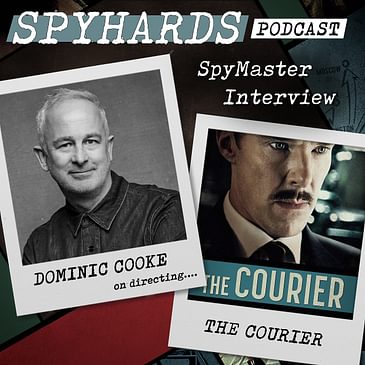Agents Scott and Cam welcome director Dominic Cooke to the show to discuss the making of the 2020 Benedict Cumberbatch spy drama The Courier.
Become a SpyHards Patron and gain access to top secret "Agents in the Field" bonus episodes, movie commentaries and more!
Social media: @spyhards
Purchase the latest exclusive SpyHards merch at Redbubble.
View the NOC List and the Disavowed List at Letterboxd.com/spyhards
Podcast artwork by Hannah Hughes.
Theme music by Doug Astley.



